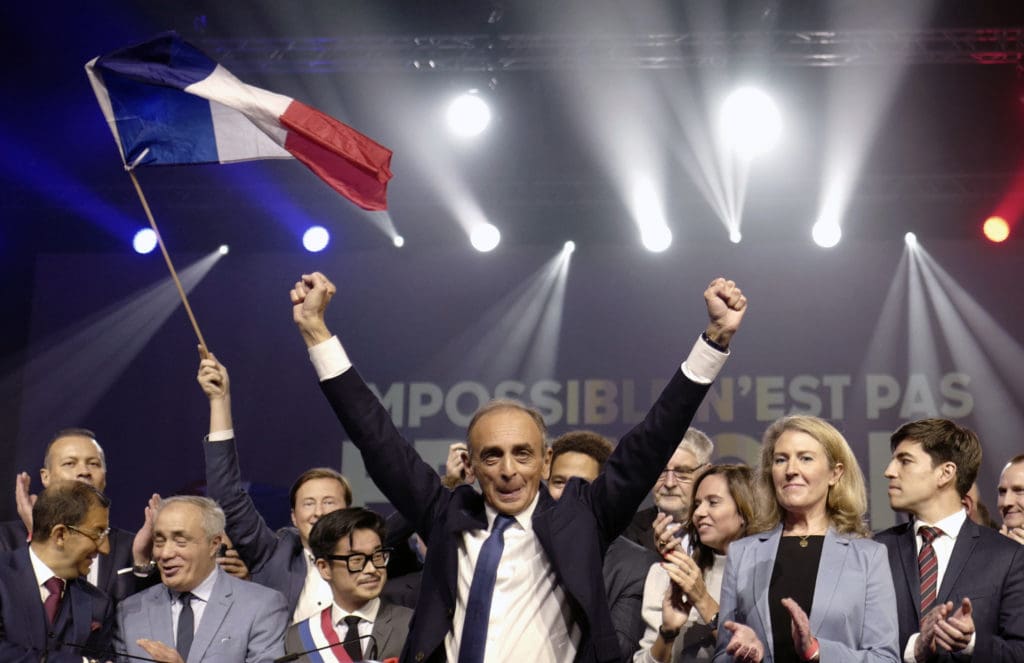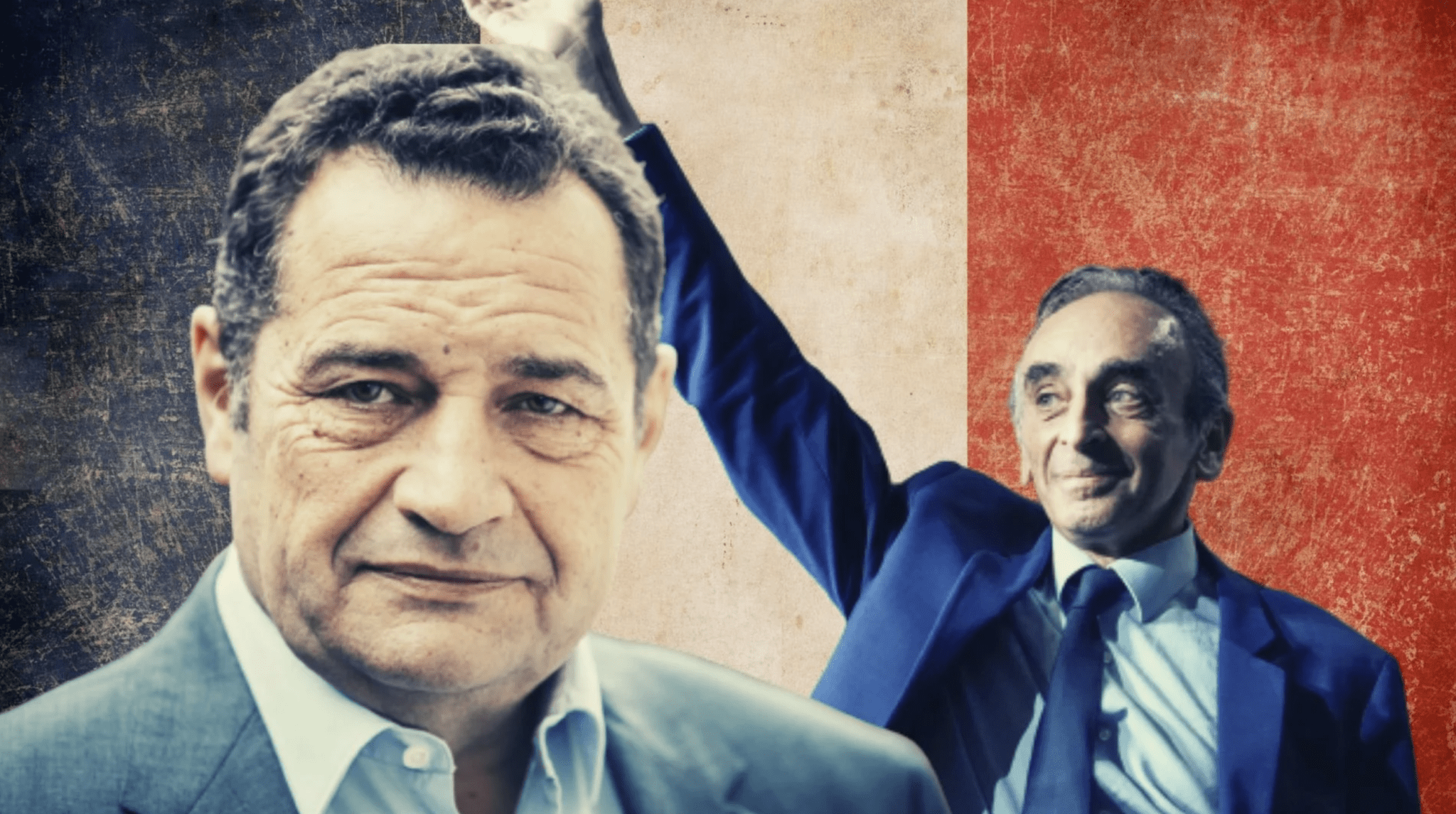What did you think of Emmanuel Macron’s speech in the European Parliament? In particular, when he spoke of the rule of law and democracy being threatened in certain countries, since everyone understood that it was Poland and Hungary the French president was pointing at with his words. As this was just before the introduction of the much-protested vaccine pass in France, wasn’t it a classic case of the pot calling the kettle black?
Listening to him, I said to myself: that’s good, at least he is lucid about the situation in his own country because in France we are under repeated attacks against our freedoms. Sometimes it’s related to the health crisis, but sometimes not.
There is obviously all that’s related to freedom of worship, demonstration, assembly, movement, work, and so on, all of which are impacted by the health crisis. But before that, in other respects, there was an attack on the freedom of education with the so-called “law against separatism,” since the freedom of families to choose the way their children are raised was restricted [with limits put on home-schooling for all, in the name of the fight against Islamic extremism, ed.]. The infamous Avia law [which has been invalidated by France’s Constitutional Council, ed.] was an attempt at organizing censorship on the Internet and social networks and to define what one has the right to say and what one does not have the right to say under the pretext of prohibiting “hate” on social networks.
This is actually very understandable. It is one of the known forms of liberalism when it has decided to establish itself without limits: in order to reduce individuals to isolated consumers, which is the ideal of the human person from the point of view of pure liberals, it is necessary to resort to increased power of the state, to isolate individuals, and to cut down their capacity of resistance.
This tendency to erode fundamental rights is much more prevalent in France than elsewhere. It is unfortunately supported by our highest judicial institutions, and it also gets broad support from the European Court of Human Rights in most cases. This tendency is perfectly in line with the ultra-liberal project of Macron and his European friends.
The French president also accused some countries of questioning the European treaties they have signed and ratified, which was a clear reference to Poland and its constitutional court’s October ruling on the limits of the ECJ’s jurisdiction. And then he said that the French presidency of the EU Council would work to have a right to abortion enshrined in the EU Charter of Fundamental Rights, which means that he is actually the one questioning the existing treaties. “Do as I say, but not as I do?”
With the French president, we have a totalitarian conception of the law: only those who agree with me respect the law, and the rest are outlaws. This is the essence of progressivism, and it’s in Marx: if you don’t embrace progress, you’re a reactionary, and you have no right to anything.
Words are ambivalent, they have several meanings at the same time and one takes the one that suits best. We used to live in a world that was quite simple to understand, in which there were basic rights that were the same for everyone, based on a language that could of course be interpreted, but in which the words used in legal texts had the same meaning for everyone and were not subject to permanent fluctuation. However, our world is now being shaken to the benefit of authoritarian rule. It has the appearance of a regime ruled by law though, like all authoritarian regimes. The Soviet Union had a constitution too, and religious freedom was guaranteed by its laws.
Poland’s understanding of the European treaties in force is that they do not in any way prevent it from putting its administration of justice in order if it so wishes. This is the Polish government’s position and it is perfectly right in this respect. And I don’t see how abortion, which falls under the jurisdiction of the member states according to the treaties referred to by the French president, could be forced on them without twisting the ratified treaties.
In this situation, how do you explain the fact that Poland and Hungary are always the ones targeted by the EU institutions? Health restrictions are less strict there and freedoms have been much less restricted than in France since the start of the Covid pandemic; no demonstrators have lost an eye or have had a hand torn off by police fire under their current governments, unlike what happened under Emmanuel Macron’s presidency in France; there is no recording of philosophical opinions or religious or trade union affiliations, unlike what Macron has put in place in France. However, it is Poland and Hungary that are suspected of undermining democracy, while nothing is said about France in Brussels. How is this possible?
There is a very beautiful fable by La Fontaine called “The Animals Sick of the Plague.” The moral of the fable is well known in France: “Accordingly as your power is great or small, the judgments of a court will whiten or blacken your reputation.”
Poland and Hungary are free countries, and that is exactly what is wrong. They are not submitted to the European Commission, to its sometimes idiotic diktats, and that is what is wrong. They also demonstrate to the European peoples that not only can we do things differently, but that when we do things differently, it works better. This can only make people in the European Commission unhappy. The policy of the Polish and Hungarian governments — one could add the Slovaks and a few others as well, even if they are more discreet — is a permanent demonstration of the fact that they, in Brussels, are always wrong.
When Clément Beaune, the French secretary of state for European affairs, announced that the French presidency would reactivate the Article 7 sanctions procedure against Poland and Hungary, with a first hearing at the EU Council in mid-February, was it to divert the attention of French voters?
No, because the worst thing is that they are sincerely convinced of what they say. Clément Beaune is convinced that Poland and Hungary are spoilsports and that if the EU does not work, it is their fault, in the same way that if there is still a virus circulating in France, it is the fault of people who are not vaccinated. It’s the same scapegoat logic.
You were the first to join Éric Zemmour with your Christian Democratic party Via – La voie du peuple, by renouncing your own candidacy for next April’s presidential election. Zemmour’s victory would certainly bring about a radical change in the policy conducted by France in the EU, and not only that but do you think he has real chances to win?
We can see today, including by weighting voting intentions by the certainty expressed by those surveyed as to the choice of their candidate, that Emmanuel Macron is well below 15 percent, that Valérie Pécresse and Marine Le Pen are around 10 percent, and that Éric Zemmour is slightly above 10 percent. Thus, if we take into account the people who are sure of their voting intention, for the moment Zemmour is second. Of the right-wing candidates, he has the most solid electoral base.

The second thing is that I can see what’s going on in this campaign. I was at the Villepinte meeting with Éric Zemmour. There were 12,000 people, with absolutely incredible fervor, and a mix of generations as well as social and geographical origins that I had not seen in a political meeting for a very long time. In Châteaudun, there were 1,500 people in a sub-prefecture of Eure-et-Loir in the middle of the French countryside where people had probably not seen something like this for a very long time. And it’s the same for all our meetings and events, including, proportionately, when Éric Zemmour is not there. Zemmour is number one on social networks and he attracts the biggest audience every time he appears on television. Something is definitely going on.
That’s why I think the polls are a poor measure of his popularity. First, because Zemmour is new, and also because many people did not come to vote anymore and now come back to political rallies saying that they will vote for Zemmour, but since they have no political background they are not easy to model for pollsters. And finally, I think that as was the case for Jean-Marie Le Pen twenty years ago, there are many people who want to vote for Zemmour but who don’t say they will.
For all these reasons, I am convinced that Éric Zemmour can win and I am absolutely convinced that the resonance that his program has with the aspirations of the French people will place him in the first round ahead of Valérie Pécresse, who is a replica of Emmanuel Macron, and ahead of Marine Le Pen, who is losing steam.
Since you have joined him, you must think that Éric Zemmour is a true conservative and that his electoral program is compatible with the Christian values that you have always professed for France.
Of course, that’s exactly what I believe. An electoral alliance is always a matter of compromise and prioritization anyway. But I have thirty years of political struggle behind me, and it so happens that the alliance with Éric Zemmour was one of the easiest for us to forge because his vision of things and his priorities for France are exactly the same as ours. He clearly has a style that is not mine. He says things in a more angular and raspy way than I do, but that’s just a matter of style. On the substance, to take the example of the subjects that make people angry, I proposed the suspension of ius soli, that is, the right to citizenship for those who are born in the country, during the primary of the center-right five years ago and Zemmour’s project on immigration is roughly the same as my own five years ago. This was also the project of the center-right thirty years ago, but it never had the courage to implement it.
There is an orientation of principle on which Christians must reflect, basing themselves, why not, on Pope John Paul II’s beautiful text “Memory and Identity,” to understand that in the Church’s thinking the nation is a framework of life and a soil absolutely indispensable to the common good of people. Éric Zemmour’s approach to defending the nation is legitimate from a Christian point of view, and it is for good reasons, to give it the framework and political power it deserves in a just and proportionate way. It is, therefore, not hard for us to support Éric Zemmour, including with regard to our fundamental inspiration, which is in our statutes, i.e. Christian thinking and social culture.
Since the beginning of the year, we have witnessed the rallying of the very media-friendly Gilbert Collard and Jean Messiha, originally from Le Pen’s National Rally (RN), as well as of the chairman of the RN group in the European Parliament, Jérôme Rivière, who has criticized the RN’s leftward shift on societal issues where it used to be more conservative. There was also an important rallying from center-right Les Républicains, with Guillaume Peltier, who was vice-chair of the LR party until last December. Do you think that this is the beginning of a wave of rallying in favor of the conservative candidate, the kind of wave you had announced for the presidential election of 2022 in the interview we had a little more than two years ago for the Polish weekly Do Rzeczy, when it was not yet known who would be the future candidate of the French conservative right?
Yes, that’s what I think. I see a lot of lesser-known party executives, local officials, deputy mayors, departmental councilors, regional councilors, people who have been exercising militant responsibilities for a while, who are starting to take the plunge. Without taking anything away from Marine Le Pen’s merit, she is not in a position to arouse this new enthusiasm. There will be other people who will join us, but certainly not among the top LR executives who will support their candidate, Valérie Pécresse, to the end. On Feb 5, there will be, at the same time, Éric Zemmour’s meeting in Lille and that of Marine Le Pen in Reims, and you will see that in the applause meter and in the number of attendants, Zemmour will win hands down. And it will be the same with Valérie Pécresse. As Éric Zemmour makes a difference, I think more and more people will rally to us, but we’ll have to wait a little longer for that.





